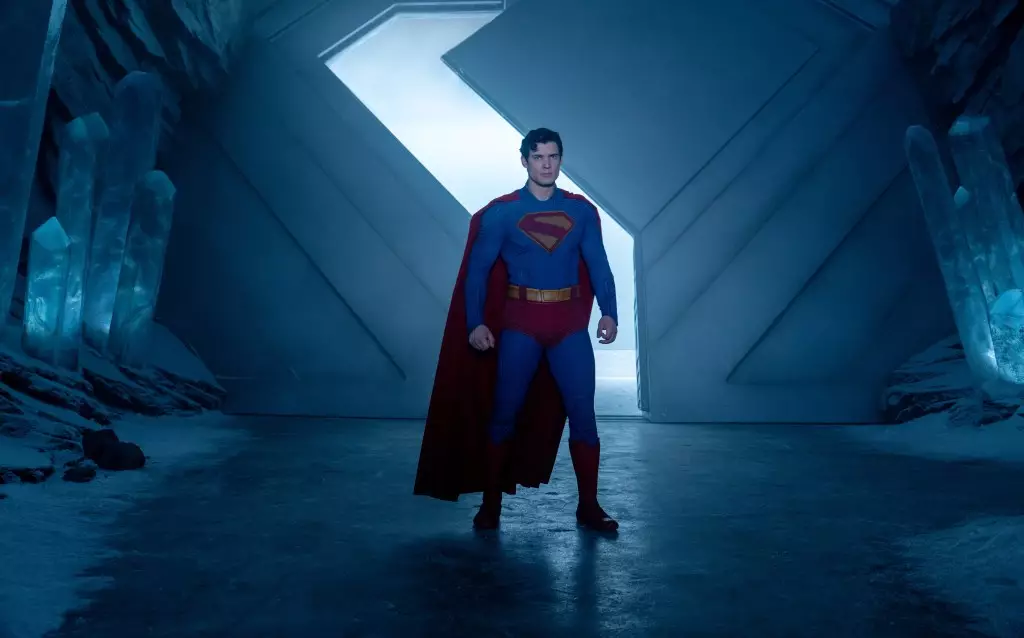The latest Superman reboot, helmed by James Gunn, has certainly generated buzz, but a critical analysis reveals a more complex reality behind the box office numbers. While initial figures seem impressive—$40.3 million in North America and a global tally surpassing $56 million—these numbers are often inflated by frantic marketing and administrative hype rather than reflecting genuine cultural resonance. The film’s early release strategy, involving previews and rapid international rollouts, appears to be a calculated move designed more to boost metrics than to ensure sustainable success. It’s crucial to question whether this immediate hype signifies a revival for the character or merely reveals the industry’s obsession with immediate numbers at the expense of long-term storytelling quality.
Market Performance: A Mixed Bag of Movements
On paper, Superman’s global debut might look like a victory: France opened strongly at $1.3 million during a holiday weekend, and markets like Korea, Italy, and Indonesia saw commendable numbers considering their economic and cultural contexts. However, beneath these headlines lies the unsettling truth—the international markets, particularly Korea and China, are not as robust as they once were for Hollywood blockbusters. The muted response in these key territories indicates a shifting global landscape where audiences increasingly crave nuanced narratives over spectacle-driven franchises. The Korea debut, akin in size to “Guardians of the Galaxy,” is not a sign of a booming franchise but rather a reflection of limited options and market fatigue. Meanwhile, China’s opening of $2.4 million suggests lukewarm interest, underlining the difficulty for American superhero films to rekindle international enthusiasm as they once did.
A Shell of Its Potential
The so-called ‘big openings’ are, at best, superficial indicators of success. They are driven by short bursts of global marketing and spectacle rather than lasting cultural impact. James Gunn’s interpretation of Superman might be visually appealing, but the film’s rapid roll-out and initial focus on record-breaking numbers risk undermining the development of a compelling narrative that can resonate over time. The pandemic’s impact on global theaters and changing audience preferences further complicate the picture. Many fans and critics remain skeptical about whether this reboot brings anything substantially new or meaningful to Superman’s mythos or if it’s just another studio attempt to bank on a proven brand.
The Myth of the International Audience Receptivity
While markets like France and Indonesia welcomed the film with strong openings, these numbers don’t necessarily translate into steady, repeat viewings or long-term fan engagement. The inflated expectations for international box office performance—relying heavily on markets like Brazil, India, and Southeast Asia—are often unrealistic given the shift in cultural tastes. Audiences in these regions, which traditionally supported Hollywood blockbusters, are now increasingly seeking local stories or diverse genres that better reflect their identities and experiences. The core assumption that Superman’s global appeal remains intact is increasingly questionable; what worked in the past doesn’t automatically work today.
A Future Mired in Commercial Hype
Ultimately, Superman’s latest outing exposes the industry’s addiction to box office numbers rather than sustainable storytelling. The wave of initial hype, buoyed by strategic release timings, previews, and marketing blitzes, may inflate short-term revenues but does little to assure future success or artistic integrity. This phenomenon underscores a deeper problem: Hollywood’s obsession with quick wins and record-breaking openings often comes at the expense of authentic storytelling that encourages audience loyalty over time. Superman’s cultural relevance ought to be measured not by how quickly he zips across screens but by whether he evolves into a meaningful symbol within a changing world. If this film doesn’t learn that lesson, it risks becoming yet another failed attempt to recapture past glories, leaving fans with hollow spectacles instead of genuine cinematic breakthroughs.


Leave a Reply